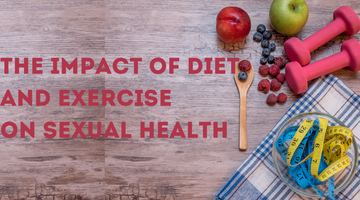
When you lose weight, your body responds by fighting back. You may be able to lose a significant amount of weight at first with little effort. However, after a while, weight loss may slow or stop completely.
This blog will go over a few common reasons why you aren't losing weight. It also includes actionable suggestions for breaking through the plateau and getting things moving again.
You're Losing Without Realizing It:
If you believe you have reached a weight loss plateau, don't worry just yet. It is extremely common for the scale to remain stationary for several days or weeks at a time. This is not to say you are not losing fat.
Body weight fluctuates by a few pounds. It is determined by the foods you consume, and hormones can also have a significant impact on how much water your body retains. Furthermore, it is possible to gain muscle while losing fat. This is especially common if you have only recently begun exercising.
This is a good thing because you want to lose body fat, not just weight. It is a good idea to measure your progress with something other than the scale. Measure your waist circumference and body fat percentage, for example, once a month.
In addition, how your clothes fit and how you appear in the mirror can be very telling. You probably don't need to worry about anything unless your weight has been stable for more than 1-2 weeks.
Not Keeping Track Of What You Eat.
If you're trying to lose weight, being aware is crucial. Many people are unaware of how much they consume. Keeping track of your food intake has been shown in studies to aid in weight loss. People who keep food diaries or photograph their meals lose more weight than those who do not. At the same time, there may be a disadvantage to food tracking. When you lose weight, your body responds by fighting back.
You may be able to lose a significant amount of weight at first with little effort. However, after a while, weight loss may slow or stop completely.
Not Consuming Enough Protein.
Protein is an important nutrient for weight loss. Eating protein at 25-30% of calories can increase metabolism by 80-100 calories per day and cause you to eat hundreds of fewer calories per day. It can also significantly reduce cravings and the desire to snack.
This is mediated in part by protein's effects on appetite-regulating hormones like ghrelin and others. If you eat breakfast, make it high in protein. According to research, people who eat a high-protein breakfast feel less hungry and have fewer cravings throughout the day.
A high protein intake also helps to prevent metabolic slowdown, which is a common side effect of weight loss. It also aids in the prevention of weight gain.
You Are Not Lifting Weights
One of the most important things you can do to lose weight is to engage in some form of resistance training, such as weight lifting. This can help you keep muscle mass, which is often burned along with body fat when you don't exercise. Lifting weights can also help you avoid metabolic slowdowns and keep your body toned and muscular.
Strength training is an efficient method of fat loss. It helps to maintain long-term fat loss by preventing muscle mass loss which is commonly associated with weight loss.
Binge Eating
Binge eating entails rapidly consuming large amounts of food, often far more than your body requires.
This can be a significant issue for many people who are attempting to lose weight. Some people binge on highly processed foods, while others binge on foods that are relatively healthy, such as nuts, nut butter, dark chocolate, cheese, and so on. Even if something is labeled "healthy," the calories it contains still count.
If you frequently binge on food, it is possible that your weight loss journey has come to a halt.
Consuming Sugar More Than Required
Sugary beverages are among the most fattening foods available. Your brain does not compensate for the calories in them by causing you to consume fewer calories from other foods.
This is not limited to sugary drinks like Coke and Pepsi. It also applies to "healthier" beverages, such as Vitamin, which are high in sugar. Fruit juices are also problematic and should not be consumed in large quantities. A single glass of juice can have the same amount of sugar as several pieces of the whole fruit.
Avoiding all sugary beverages is a great way to lose weight. They frequently account for a significant portion of a person's calorie intake.
Not Getting Enough Sleep
One of the most important factors for your physical and mental health, as well as your weight, is getting enough sleep. According to research, one of the single most important risk factors for obesity is a lack of sleep. Adults and children who do not get enough sleep are 55% and 89% more likely to become obese, respectively.
Obesity is strongly linked to a lack of quality sleep. It may also stymie weight loss efforts.
Eating Too Frequently.
It is a myth that everyone should eat many small meals throughout the day in order to boost their metabolism and lose weight. According to research, meal frequency has little to no effect on fat burning or weight loss.
It's also ridiculously inconvenient to be preparing and eating food all day, as it complicates healthy nutrition. On the other hand, one effective weight loss method known as intermittent fasting entails going without food for extended periods of time on purpose.
Eating too frequently may result in an excess of calories, which will stymie your weight loss efforts.
Not Drinking Enough Water.
Water consumption can help with weight loss. People who drank half a liter (17 ounces) of water 30 minutes before meals lost 44% more weight than those who did not in a 12-week weight loss study.
Drinking water has also been shown to increase the number of calories burned by 24-30% over a 1.5-hour period. Drink a glass of water before each meal to help you consume fewer calories. Water consumption may also increase the number of calories burned.
Medical Condition That Might Have Side Effects
Some medical conditions can cause weight gain and make it difficult to lose weight. Hypothyroidism, Polycystic Ovarian Syndrome (PCOS), and sleep apnea are among them. Certain medications can also make losing weight more difficult or even cause weight gain.
If you believe any of these conditions apply to you, consult your doctor about your options. Medical conditions like hypothyroidism, sleep apnea, and PCOS may be interfering with your weight loss efforts.
In Conclusion
Weight loss is not always easy, and a variety of factors can stymie it. At its most basic, not reaching your weight loss goal occurs when calorie intake equals or exceeds calorie use.
Try strategies like mindful eating, food diaries, eating more protein, and strength training. Finally, changing your weight and lifestyle takes time, dedication, perseverance, and resilience.
We at AADAR understand our customer's pain points of obesity or being overweight. But also never promotes chemical-based medicines or kind wrong way in this journey. We understand how important and effective it is to lose weight via the Ayurvedic method and that's where we have one of the most trusted products Weight No More which is completely Ayurvedic-based and has no side effects. We at AADAR want your journey to weight loss to be safe and easy.
We have Health Experts who can easily connect with you and discuss your sexual concerns. You can consult your family doctor first to get the most accurate diagnosis, or you can contact our Health Expert or connect with us at +919867667699.




